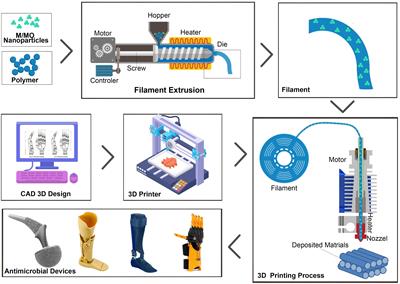EDITORIAL
Published on 19 Jul 2021
Editorial: Design and Applications of Metal- and Metal Oxide-Based Antibacterial Materials
doi 10.3389/fmats.2021.732534
- 1,630 views
8,900
Total downloads
49k
Total views and downloads
EDITORIAL
Published on 19 Jul 2021
MINI REVIEW
Published on 15 Sep 2020

ORIGINAL RESEARCH
Published on 12 Aug 2020

REVIEW
Published on 17 Jul 2020

ORIGINAL RESEARCH
Published on 24 Jun 2020

